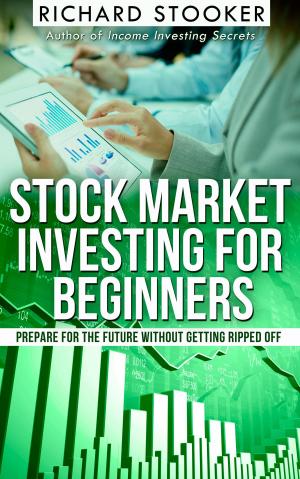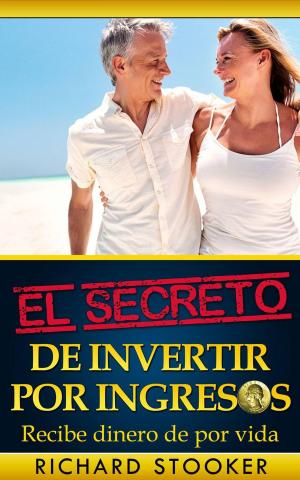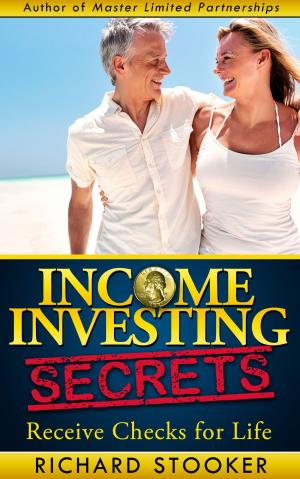| Author: | Richard Stooker | ISBN: | 9781466032385 |
| Publisher: | Richard Stooker | Publication: | August 25, 2011 |
| Imprint: | Smashwords Edition | Language: | English |
| Author: | Richard Stooker |
| ISBN: | 9781466032385 |
| Publisher: | Richard Stooker |
| Publication: | August 25, 2011 |
| Imprint: | Smashwords Edition |
| Language: | English |
This is a short report -- around 10,000 words -- on the amazing health and anti-aging benefits available right now to seniors who wish to postpone old age and death for as long as possible.
This work is all-original and all-unique.
What causes us to age?
At first, that sounds like a stupid question. Aging is such an intrinsic aspect to the human condition we tend to take for granted that it . . . just . . . happens.
But we live in a world of cause and effect. Aging is an effect, so what is the cause?
The common way of thinking about this is from the perspective that our bodies are physical, and everything else that's physical eventually wears out or breaks down, such as our cars, our houses, and even our computers.
That's known as the "wear and tear" theory of aging.
But our bodies are different from such items because they're alive and, in optimum conditions of health, regenerate themselves if at all possible.
Cuts heal over, broken bones knit and so on.
Indeed, every day millions of our cells die in the course of performing their functions. They're simply replaced by new cells. Our bodies can even work around permanently damaged tissue, even including the brain itself.
However, at a certain point, our bodies become less able to repair and regenerate. About age 40 we stop totally repairing and processing all the protein from our dead and damaged cells. Like a declining city running out of tax revenue, services such as street repair and garbage collection get farther and farther behind.
The fear of death and the desire to live (youthfully) forever have obsessed humanity since the dawn of our species.
In one way or another, we have searched for the Fountain of Youth, to become immortal -- eternally young.
In the last hundred to hundred-fifty years or so, the average life span of people -- especially in the developed world -- has increased dramatically. Credit for that goes principly to improved sanitation, antibiotics, improved care of infants and small children, and an increase in the food supply.
So we've removed or dramatically reduced many of the causes of childhood through adulthood death.
We've living longer because more of us reach old age. Once there, however, the main causes of death are heart disease, cancer, and strokes.
The medical establishment has created heroic measures to help people with these and related problems.
But what if we could avoid them altogether? What if we could "cure" the "disease" of old age?
How long would we live?
Isn't that a better question?
That's the purpose of this short report -- to tell you about the Nobel winning medical research on telomeres and telomerase which may hold the key to an extra long lifespan, and the supplement which is available right now to help you live longer.
It's not for everybody, and it may not be for you. And you'll also learn additional ways to maintain good health far into advanced old age.
Now we have additional scientific evidence showing that moderate exercise, a noninflammatory diet, controlling stress and antioxidants really do help you live not only better, but longer.
This is a short report -- around 10,000 words -- on the amazing health and anti-aging benefits available right now to seniors who wish to postpone old age and death for as long as possible.
This work is all-original and all-unique.
What causes us to age?
At first, that sounds like a stupid question. Aging is such an intrinsic aspect to the human condition we tend to take for granted that it . . . just . . . happens.
But we live in a world of cause and effect. Aging is an effect, so what is the cause?
The common way of thinking about this is from the perspective that our bodies are physical, and everything else that's physical eventually wears out or breaks down, such as our cars, our houses, and even our computers.
That's known as the "wear and tear" theory of aging.
But our bodies are different from such items because they're alive and, in optimum conditions of health, regenerate themselves if at all possible.
Cuts heal over, broken bones knit and so on.
Indeed, every day millions of our cells die in the course of performing their functions. They're simply replaced by new cells. Our bodies can even work around permanently damaged tissue, even including the brain itself.
However, at a certain point, our bodies become less able to repair and regenerate. About age 40 we stop totally repairing and processing all the protein from our dead and damaged cells. Like a declining city running out of tax revenue, services such as street repair and garbage collection get farther and farther behind.
The fear of death and the desire to live (youthfully) forever have obsessed humanity since the dawn of our species.
In one way or another, we have searched for the Fountain of Youth, to become immortal -- eternally young.
In the last hundred to hundred-fifty years or so, the average life span of people -- especially in the developed world -- has increased dramatically. Credit for that goes principly to improved sanitation, antibiotics, improved care of infants and small children, and an increase in the food supply.
So we've removed or dramatically reduced many of the causes of childhood through adulthood death.
We've living longer because more of us reach old age. Once there, however, the main causes of death are heart disease, cancer, and strokes.
The medical establishment has created heroic measures to help people with these and related problems.
But what if we could avoid them altogether? What if we could "cure" the "disease" of old age?
How long would we live?
Isn't that a better question?
That's the purpose of this short report -- to tell you about the Nobel winning medical research on telomeres and telomerase which may hold the key to an extra long lifespan, and the supplement which is available right now to help you live longer.
It's not for everybody, and it may not be for you. And you'll also learn additional ways to maintain good health far into advanced old age.
Now we have additional scientific evidence showing that moderate exercise, a noninflammatory diet, controlling stress and antioxidants really do help you live not only better, but longer.















